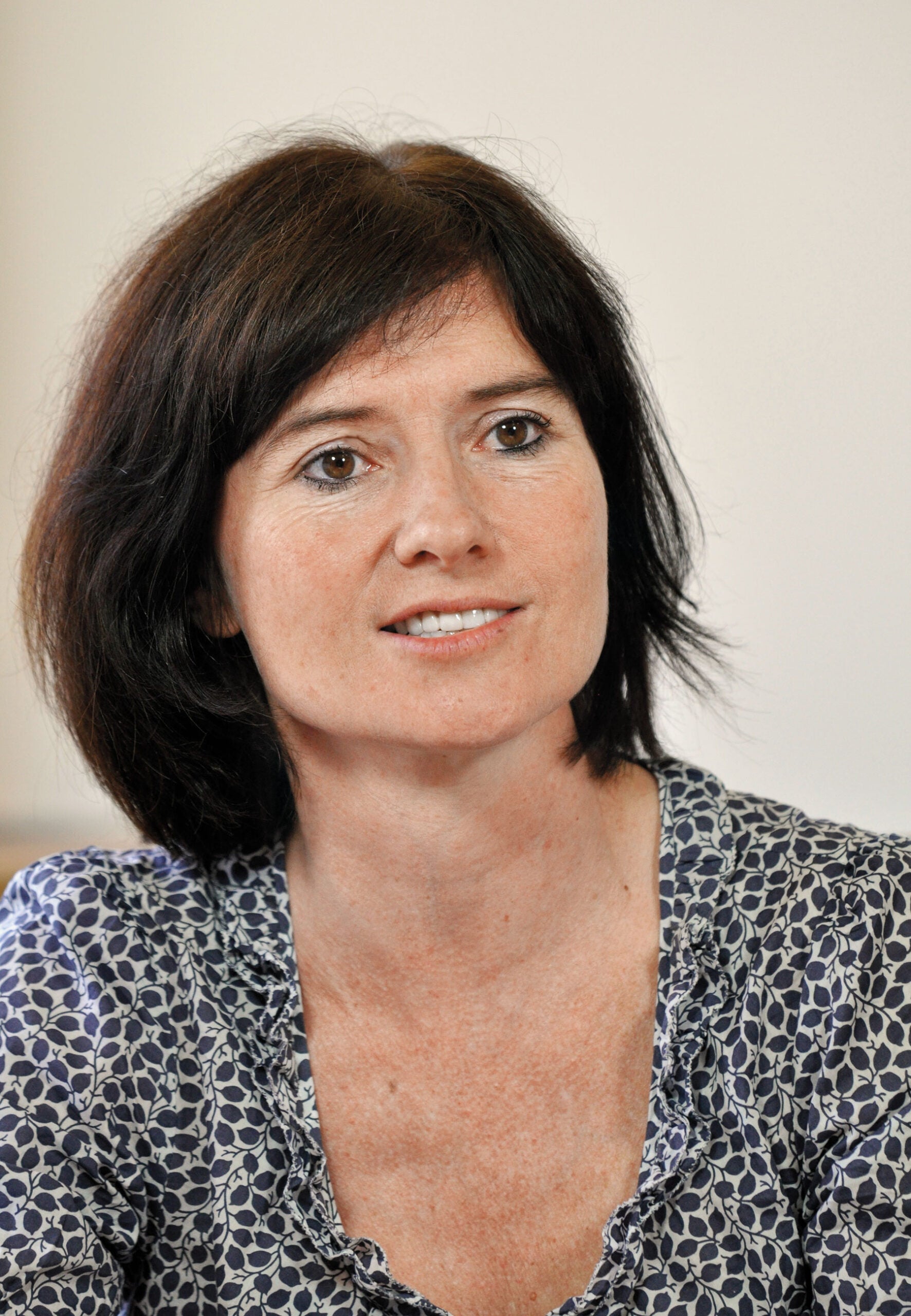Professor Gráinne de Búrca calls EU law “history in the making, a process of integration that’s taking place and changing before our eyes.” When she first taught the subject in Europe—at Oxford and then the European University Institute in Florence, Italy—it was a question of interpreting the region’s emergent law.
When the Irish scholar came to the U.S. to teach—first at Fordham Law School and this fall joining the faculty at HLS—her angle changed. Instead of the law of the land, the EU represented a model of the possible. “It’s the world’s largest trading block,” says de Búrca. “And despite the financial crisis, it’s still seen by many as the most successful example of regional economic cooperation, emulated by other regional organizations, including ASEAN, the African Union and Mercosur.”
States that had been at war, on and off, for centuries, “are now knotted together in this … incredibly complicated, fine-grained, but, nonetheless, working system of political and economic governance.” It’s a fascinating entity, she says, as a trading power and as a global political force in its own right.
In her writing on the EU, de Búrca is exploring its viability and significance as a model of transnational governance, as well as its emerging role as an international actor.
The signing of the Maastricht Treaty in 1992 marked the creation of the euro, but also, de Búrca says, “the expansion of Europe’s ambitions from being a project of economic integration to something explicitly political.” This expansion did not come without tensions. And in 2008, the financial crisis raised these tensions to a whole new level, she says.
Some people have gone so far as to predict the end of the euro and of the European project itself. “I don’t believe there is a real threat to the future existence of the EU,” says de Búrca, “but these are very turbulent times.”
De Búrca believes that for political elites, there’s little risk of a loss of faith in the European project. But she does see a significant disconnect between these governments and their citizens. And that growing gap, she says, is what is most likely to be destabilizing.
She also points to the troubling wave of anti-immigrant sentiment, which “cuts against the ideals on which the EU was founded.” It started well before the French expulsion of Roma this summer, she says. Since the Eastern expansion of the EU in 2004, there has been a whole new anti-immigrant slant often couched in nationalist rhetoric, aimed in particular at migrant workers from the newer member states of Central and Eastern Europe, as well as at non-EU nationals more generally.
But at the same time as these debates rage in individual states, de Búrca observes that the web of policymaking and governance and administration that links all of the EU countries on a daily basis is only getting stronger. And most Europeans don’t realize it. “Their sense of national identity and sovereignty is far stronger than the actuality of how and where their laws and policies are made.”
Many citizens don’t realize how much their everyday life is governed at a European level, de Búrca says, until they have a problem that calls for government involvement. And then it becomes clear just how complex it is. “It’s not just a case of writing to your local MP, or to your town council,” she says. “The position is much more complicated. It’s increasingly hard to point to an issue that is uniquely national, or uniquely European.” The local, national and European levels are increasingly meshed, she says, in the making of policy from family law to criminal law.
In 2009, the Lisbon Treaty came into force, after a decade of failed struggle to enact a constitution for Europe. The treaty contains almost everything that was in the rejected constitutional treaty—all the functional reforms, says de Búrca, but with the symbolism of “superstatehood taken out.” For de Búrca, this omission speaks volumes about member states’ ambivalence toward the EU’s emerging role.
“On the one hand, they want the EU to be a strong global actor,” she says. “On the other hand, there’s always a fear of undermining the voice and the status of the individual states.”
